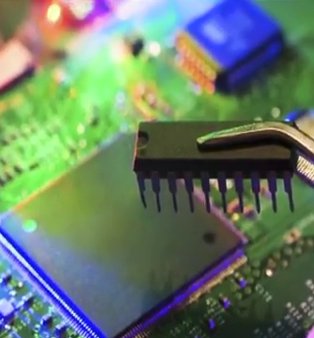| Four Generations - Video |
| Written by Historian | |||
| Saturday, 17 March 2012 | |||
|
Four Generations of Computers is a new sequence of videos from the Open University designed to get you interested in its computing courses. Four Generations of Computers is a new sequence of videos from the Open University designed to get you interested in its computing courses, in particular the new foundation module, My Digital Life. Four generations? The whole idea of computer generations is a little dubious. In the early days we were happy to say that the switch from vacuum tubes (valves) to transistors and then to integrated circuits was such a large and obvious difference that it was very reasonable to call each set of machines a generation. But then things went a little wrong and the marketing department got hold of the idea and decided that after the third generation there should be a fourth and so companies and even nations vied with one other to produce fourth generation machines - that really weren't any different from the third generation. Then, of course, the LSI revolution happened and the micro-controller grew up into the micro-computer which took over the desktop, laptop and more recently the phone. It is arguable that this change wasn't as great as the previous three but it probably does deserve being called the fourth generations even if it is more difficult to draw a clear line between the third and fourth.
The OU takes a fairly UK-oriented approach to selecting the four representatives of the generations. The first is the Colossus built using vacuum tubes (valves). It is an example of the first generation technology, but was it a real stored program computer? You can argue this point for a long time.
The really interesting comment is that even though all of the machines were destroyed along with their circuit diagrams, a reconstruction was possible because an engineer keep a schematic - and Tony Sale comments "as they always do". The second generation machine chosen to be a representative is the Elliott 803. This is a second generation machine because it uses transistors and it is arguably one of the first mini-computers but perhaps it is better described as a small mainframe.
ICL 2966 is a third generation machine using integrated circuits - but not the big LSI style of chip we are currently used to. In this case each chip implemented typically four logic gates. You might also be surprised to learn that the machine wasn't noticeably smaller. than the previous generation, mainly because the disk drives were the size of washing machines:
The choice of the fourth generation is the BBC Micro. You get to see the original BBC Micro and hear its designer, Chris Turner, discuss the attitude prevalent at that time that you had to learn about computers to say ahead.
The rate of change has been remarkable. Who would have predicted the way smart phones and social media have changed society back in the days of Colossus. Finally we do seem to be returning to a time when the importance of computer science is being recognised and the OU's course from which these videos are taken is one way to learn the fundamentals. More InformationThe Four Generations of Computers Related ArticlesA degree with real world relevance
Comments
or email your comment to: comments@i-programmer.info
To be informed about new articles on I Programmer, subscribe to the RSS feed, follow us on Google+, Twitter, Linkedin or Facebook or sign up for our weekly newsletter.
|
|||
| Last Updated ( Saturday, 16 April 2016 ) |


